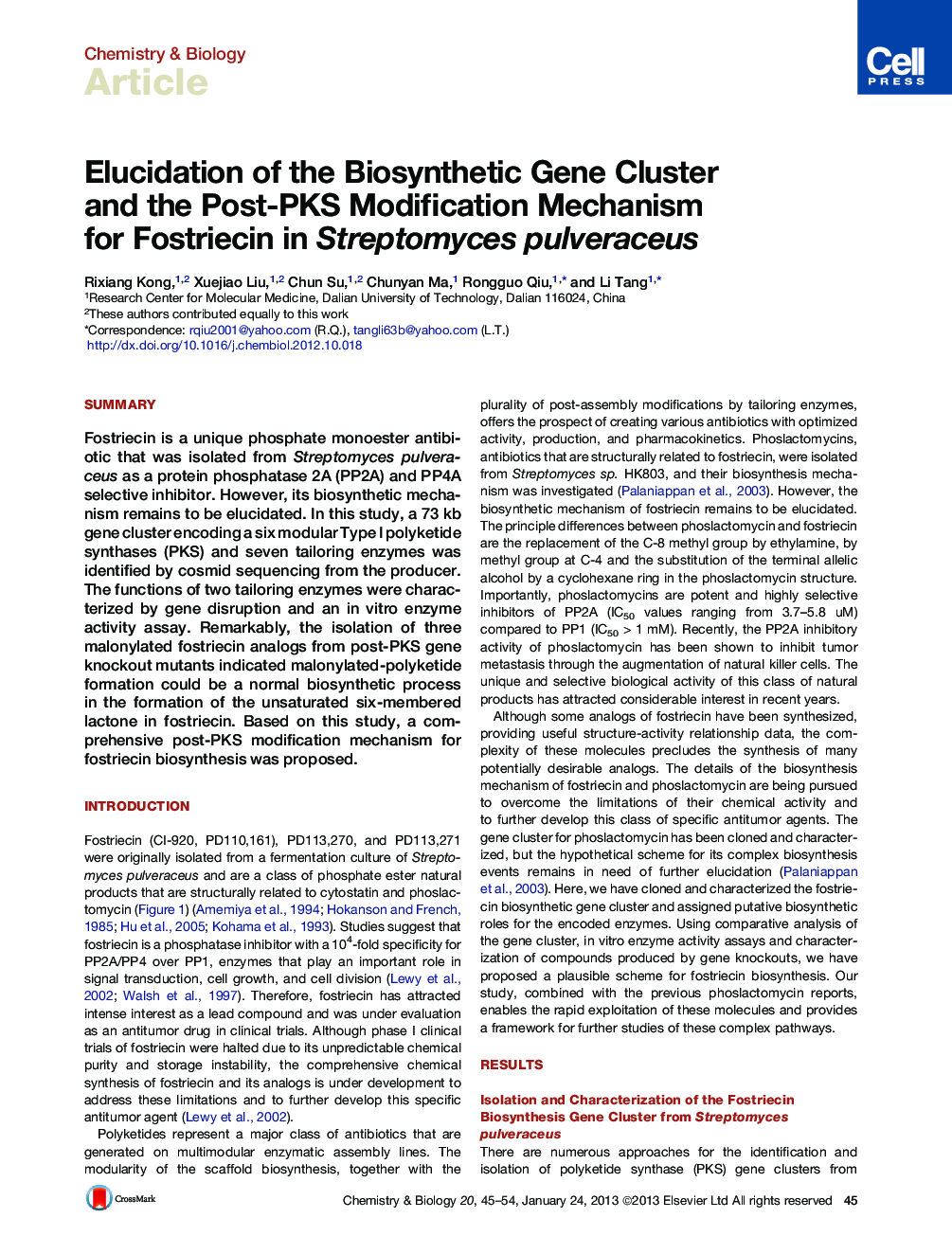| Article ID | Journal | Published Year | Pages | File Type |
|---|---|---|---|---|
| 1391223 | Chemistry & Biology | 2013 | 10 Pages |
SummaryFostriecin is a unique phosphate monoester antibiotic that was isolated from Streptomyces pulveraceus as a protein phosphatase 2A (PP2A) and PP4A selective inhibitor. However, its biosynthetic mechanism remains to be elucidated. In this study, a 73 kb gene cluster encoding a six modular Type I polyketide synthases (PKS) and seven tailoring enzymes was identified by cosmid sequencing from the producer. The functions of two tailoring enzymes were characterized by gene disruption and an in vitro enzyme activity assay. Remarkably, the isolation of three malonylated fostriecin analogs from post-PKS gene knockout mutants indicated malonylated-polyketide formation could be a normal biosynthetic process in the formation of the unsaturated six-membered lactone in fostriecin. Based on this study, a comprehensive post-PKS modification mechanism for fostriecin biosynthesis was proposed.
► An entire 73 kb fostriecin biosynthetic gene cluster was characterized ► Two tailoring enzymes FosJ and FosH was functionally characterized ► Malonylated polyketide formation could be a normal biosynthetic process ► A post-PKS modification pathway for fostriecin biosynthesis was proposed
